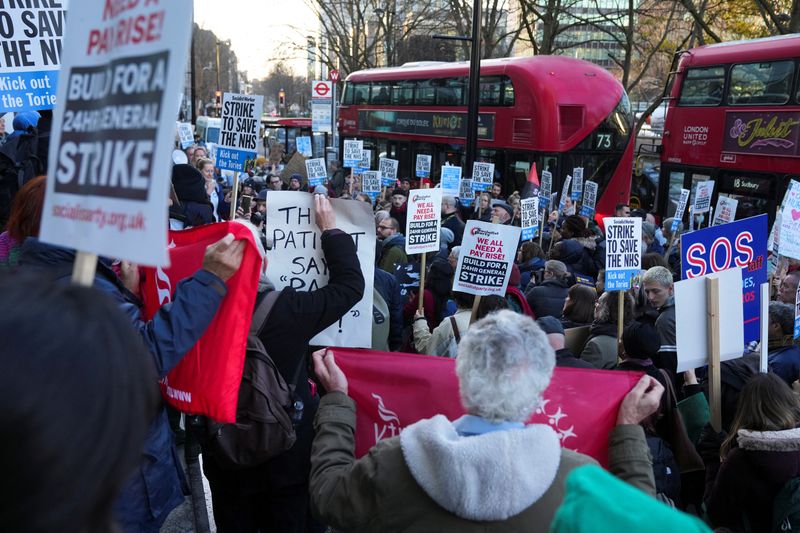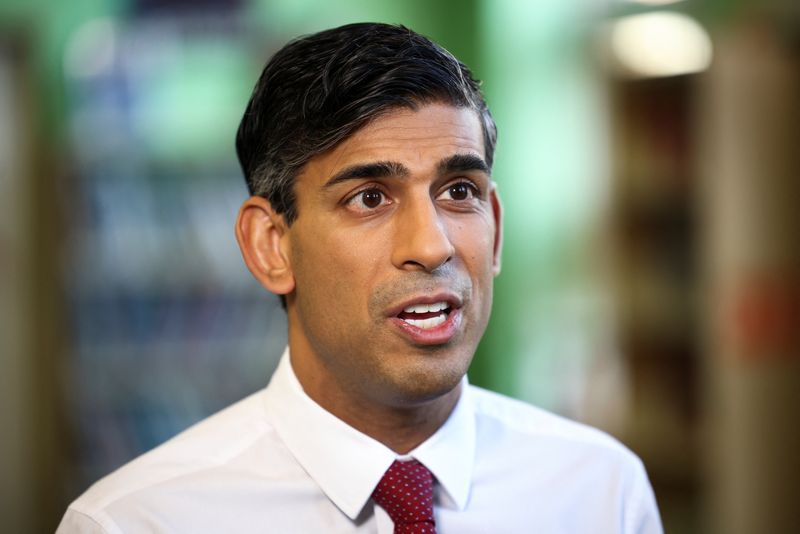By Andrew MacAskill
LONDON (Reuters) -British Prime Minister Rishi Sunak said on Sunday he was willing to discuss pay rises for nurses ahead of a meeting with public sector trade union leaders in an effort to end the biggest wave of industrial disputes in decades.
Britain's National Health Service, long treasured and funded by taxpayers, delivers free care to all, but is under strain following years of relative underinvestment and the fallout from the COVID-19 pandemic.
The strikes involving nurses and ambulance workers, staff shortages, and winter flu have led some hospitals to declare critical incidents. Patients are facing hours-long waits for ambulances, and some are being treated in corridors.
Sunak, who is under increasing pressure including from members of his Conservative Party to improve wage offers to healthcare staff, said the government was willing to have conversations with union leaders about pay, despite ministers previously refusing to reopen talks about this year's deal.
"We want to have a reasonable, honest, two-way conversation about pay," Sunak told the BBC. "The door has always been open to talk about the things that nurses want to talk about, and the unions want to talk about more generally."
Pat Cullen, the head of the Royal College of Nursing union, said she had a "chink of optimism" after noticing a "little shift" in the prime minister’s stance.
The government will hold a meeting on Monday with union officials representing public sector workers such as nurses and train drivers.
The main opposition Labour Party and the Unite union, which represents ambulance workers, accused Sunak of making misleading statements over the offer to negotiate pay.
Labour said the prime minister was taking nurses and ambulance workers "for fools" because the government has made it clear it would only negotiate pay rises for next year.
Unions have said they will only call off strikes in the next few weeks if offers are made to resolve the disputes over this year's pay settlement.
Thousands of nurses in Britain will go on strike again on Jan. 18 and 19 after walking out on two days in December. Ambulance workers are due to go on strike on Jan. 23.
Sunak repeatedly refused to say during the interview on Sunday whether he uses private healthcare insisting the issue is a "distraction from the things that really matter".
"As a general policy I wouldn’t ever talk about me or my family’s healthcare situation," he said. "It’s not really relevant."
Sunak also said it is "not a given" that inflation will slow this year amid ongoing wage negotiations.

Lowering inflation "is a function of having a responsible economic policy when it comes to things like pay", he said.
"It's not a given that it just happens. You have to continue to be disciplined and make the right, responsible decisions."
